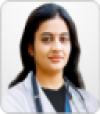Stopped Using Contraceptive Pills. Not Getting Pregnant. Medicine To Get Pregnant?

i have been married for more than one year. i stopped using contraceptive pills for exactly one year. i am worried as i havent got pregranant until now.
is this normai? or is my concern valid? when shall i visit a Gyna for tests / checks?
what kind of tests would be required?
what can tests indicate?
are there supplements provided to increase the chance of getting pregnant?
Thank you for your query.
Unsuccessfully trying to conceive inspite of having regular intercourse for a year , is technically defined as infertility, or let me choose a better word - subfertility.
It is not normal.
Your concern is valid, and you should indeed visit a Fertility Specialist at the earliest, specially considering your age.
Regarding the tests required , let me explain you a bit.
Firstly, your husband's semen analysis should be done after 3 days of abstinence. This is an important parameter.
Secondly, you should have a baseline ultrasound on day 2 of your period to evaluate the status of your uterus, ovaries and pelvic organs.
Thirdly, it should be determined if your ovulation is occurring normally. For this, various hormonal tests like FSH, LH, AMH etc would be done. Also, a cycle of follicular monitoring ( serial observation by ultrasound of the growth of the ovarian follicles that is eggs, their rupture that is ovulation and the lining of the uterus ) should be done to confirm normal ovarian function.
Lastly one important parameter is the patency of the fallopian tubes, which are responsible for meeting of the sperm and egg.
You have two options here - you can go for HSG ( hysterosalpingogram ) which is like an X XXXXXXX of the tubes, or you can go for diagnostic laparoscopy which is more reliable but more invasive. At 32, I would say you should go for laparoscopy first.
Also, basic blood investigations, thyroid profile, viral markers, blood sugars of the couple should be done.
After this work up, your Fertility Doctor will determine the further treatment.
You can be given trial of natural cycles with follicular monitoring, or drugs / medications to help ovulation if required, or ART ( assisted reproductive technologies ) if the need arises.
So please go for a consultation at the earliest, as with further ageing, the problem will worsen.
There are no proven supplements to increase chances of getting pregnant.
However there are a few tips for you :
1. Learn about the ovulation period ( in a 28 day cycle, ovulation occurs around day 14 ). Having intercourse around those days will maximize chances of conception.
2. Maintain a healthy BMI ( applies to both husband and wife ).
3. Exercise regularly and have a diet XXXXXXX in XXXXXXX leafy vegetables, antioxidants, fresh fruits etc.
4. Avoid stress and anxiety, as those two factors negatively impact the hormones and hence, fertility. Positivity is the first step towards pregnancy.
5. Talk to your husband, and conduct proper enquiries for locating a reputed fertility specialist in the area where you reside. Comply with the doctor's advice with proper sincerity and trust.
6. Take regular folic acid supplements daily.
All the best.
Feel free to ask for further clarifications.

I definitely think you should go for an Infertility Specialist.
What otherwise happens is that patients go from gynecologist to gynecologist, undergoing repeated testing and investigations and multiple treatments, and are finally referred to an infertility specialist.
It is better to go the specialist in the field so that without wasting time, complete tests and treatment can be done at one go.
It is for your benefit only.
Answered by

Get personalised answers from verified doctor in minutes across 80+ specialties



